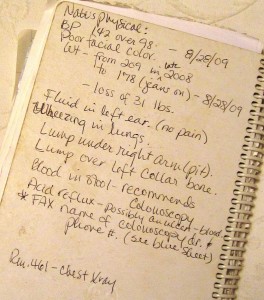 I absolutely love clear, chunky glass. It doesn’t much matter what shape it’s in, whether a figurine, a bowl, or just a blob, but the thicker the better. Imperfections or bubbles in the glass make it all the more interesting, and looking through a piece of it is something I often stop to do.
I absolutely love clear, chunky glass. It doesn’t much matter what shape it’s in, whether a figurine, a bowl, or just a blob, but the thicker the better. Imperfections or bubbles in the glass make it all the more interesting, and looking through a piece of it is something I often stop to do.
Ice does the same thing for me. The other day I was dropping some cubes into my tea and said, “Look, girls! This ice is almost completely clear!”
As I studied the beauty of each piece stacked in my glass, the girls were unimpressed. “Mom,” Louisa said, “it’s just ice, and it’s cold whether it’s clear or not.” She didn’t get it.
There’s one chronic problem with lovers of clear glass, though. We can hold it, gaze into it, and look through it, but we can’t get into it. Laugh if you must, but to be fully satisfied, that’s really what we want to do. There’s a whole world inside a chunk of glass.
 I remember a special moment on a family vacation to the wintery Northwoods of Wisconsin one January. We visited the resort town of Eagle River and found a spectacular castle built with blocks of ice. Although it was dark outside, the castle was lit from inside, and some of the ice was clear and gasp-worthy.
I remember a special moment on a family vacation to the wintery Northwoods of Wisconsin one January. We visited the resort town of Eagle River and found a spectacular castle built with blocks of ice. Although it was dark outside, the castle was lit from inside, and some of the ice was clear and gasp-worthy.
 That evening, while I reveled in the thick ice, our children, ages 16 to 20 months at the time, were enjoying the display, though not nearly as much as I was. Then I saw 7-year-old Hans put both hands on an ice block and press his nose in close. I came up behind him and said, “Isn’t it fabulous?”
That evening, while I reveled in the thick ice, our children, ages 16 to 20 months at the time, were enjoying the display, though not nearly as much as I was. Then I saw 7-year-old Hans put both hands on an ice block and press his nose in close. I came up behind him and said, “Isn’t it fabulous?”
“I see stuff in there, Mom,” he said.
Maybe what he really meant was, “I’d like to get in there and see it firsthand!” If that was it, for those few seconds he and I were on the same wavelength.
But as we walked away from the castle, I experienced the same incomplete feeling I always get when studying clear ice or glass. It’s a “not quite” sensation, something similar to our soul-feelings when we can’t quite see God or experience his physical presence. There are times when we have such an intense longing we can hardly stand it, but in this life our experience of him will always fall short of being deeply satisfying.
Thankfully his plans for our future include the one-on-one, visible relationship our hearts crave. The “not quite” will turn into “complete”. I’ve heard it theorized that hell might be the absence of God’s presence, meaning that the human heart’s longing for him will never be satisfied. And I can’t imagine any greater loss.
 Although my love of clear glass can’t compare to my love for the Lord, in the back of my mind I have a feeling he’ll take away that less important “not quite” too, and turn it into something wonderfully complete.
Although my love of clear glass can’t compare to my love for the Lord, in the back of my mind I have a feeling he’ll take away that less important “not quite” too, and turn it into something wonderfully complete.
“All my longings lie open before you, Lord; my sighing is not hidden from you.” (Psalm 38:9)




